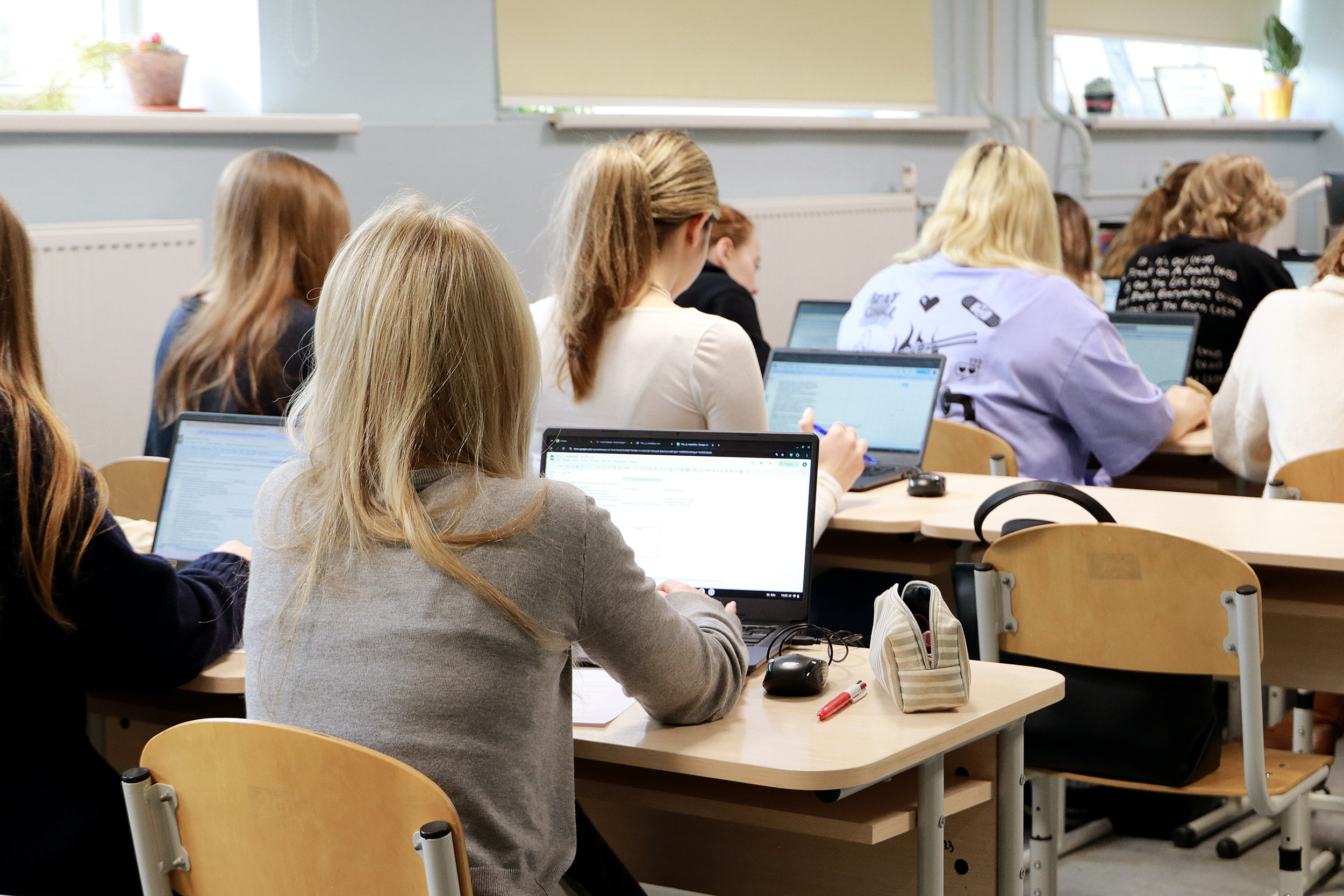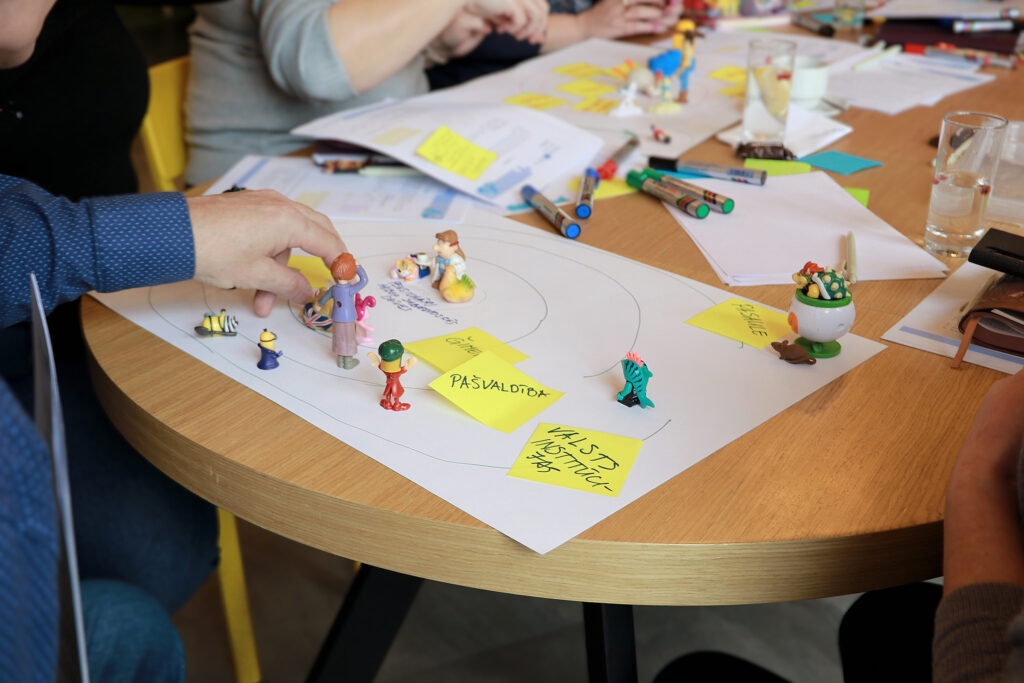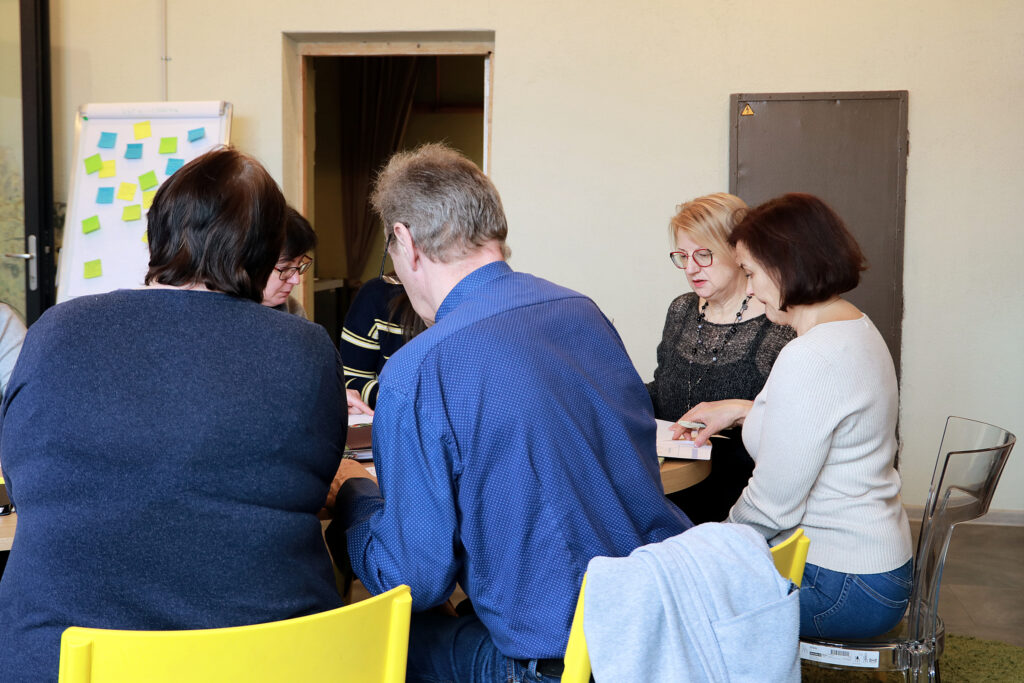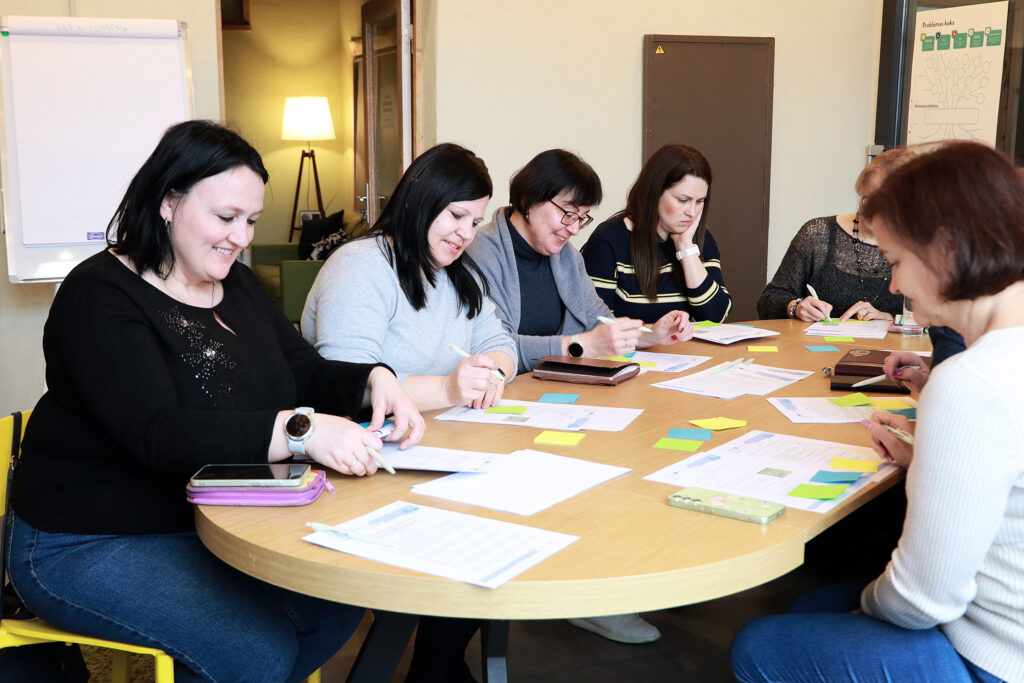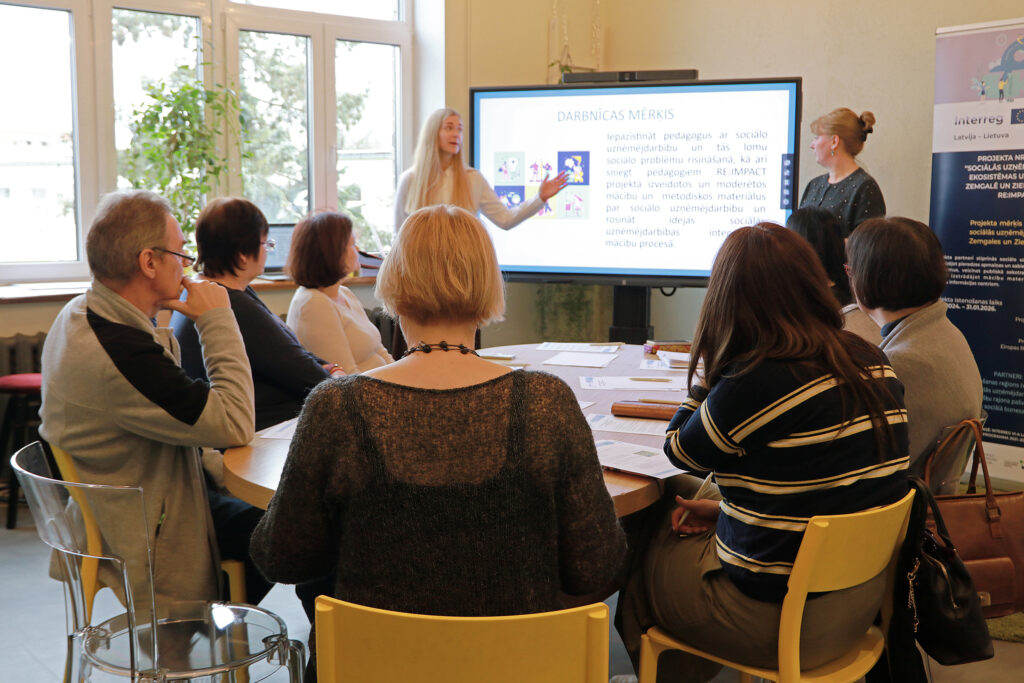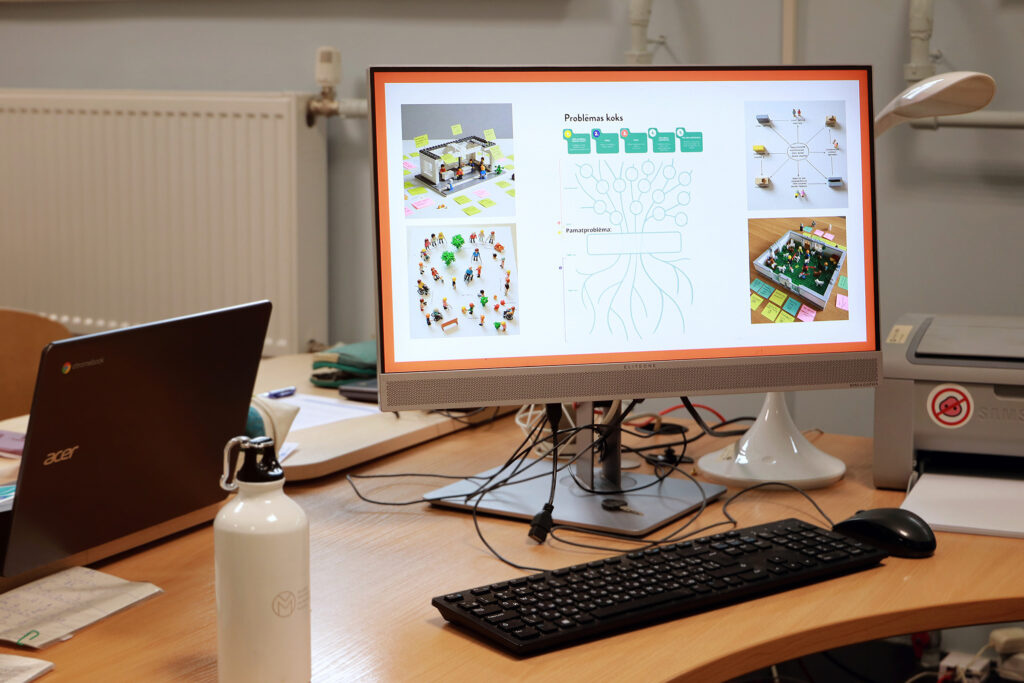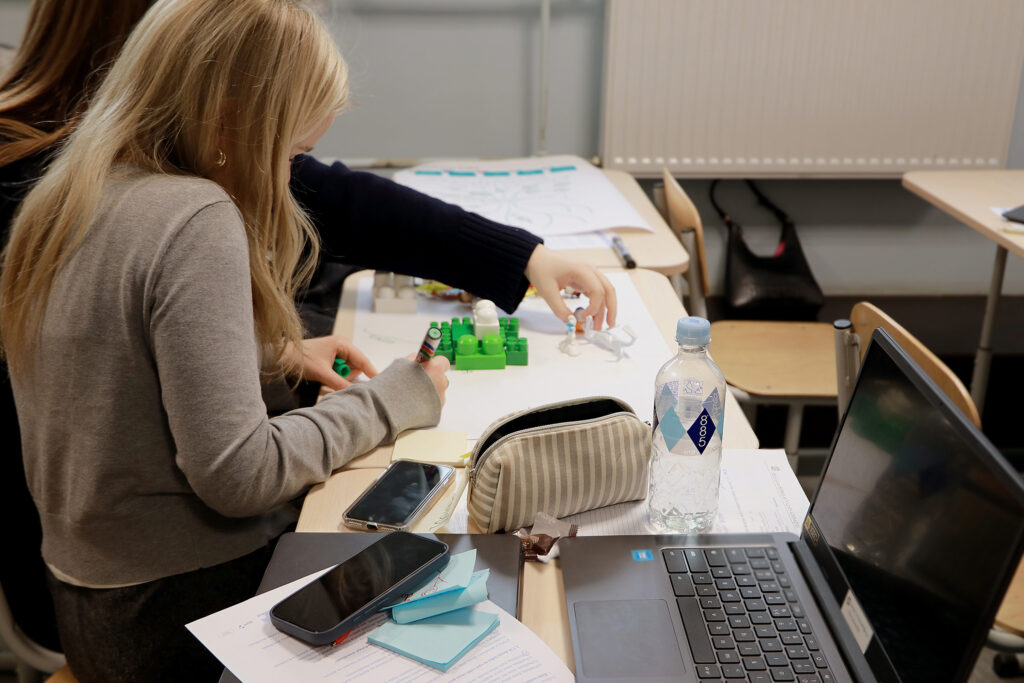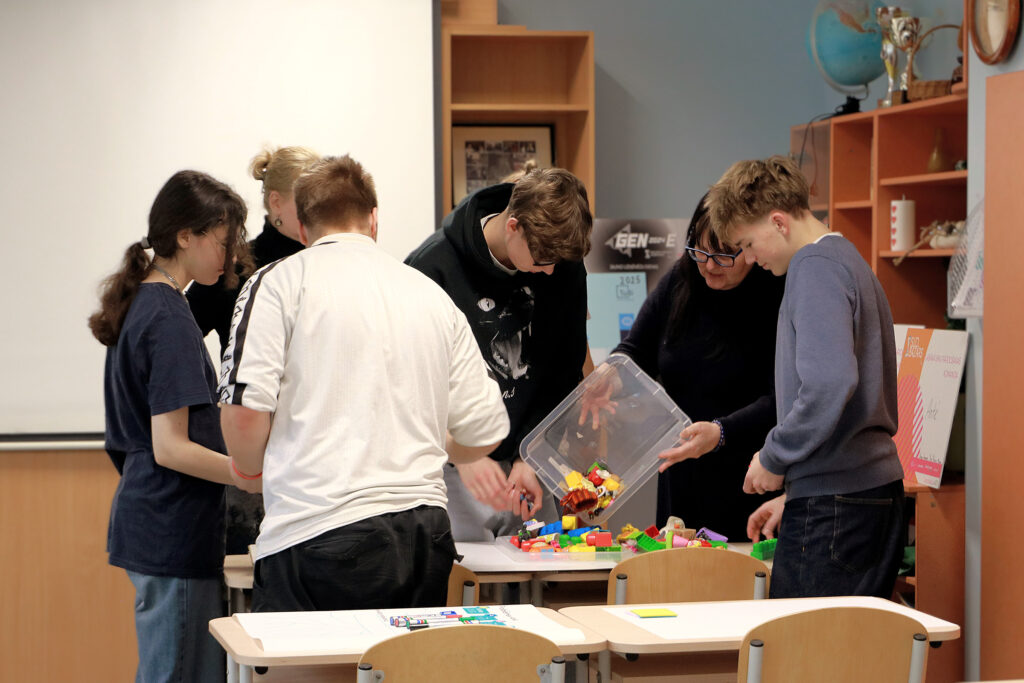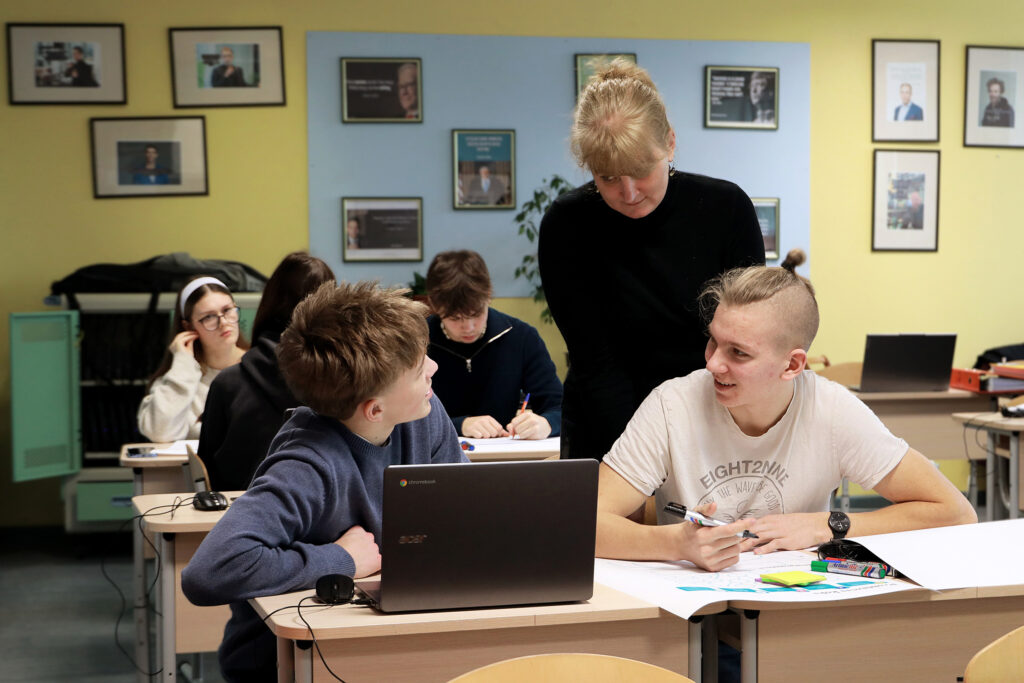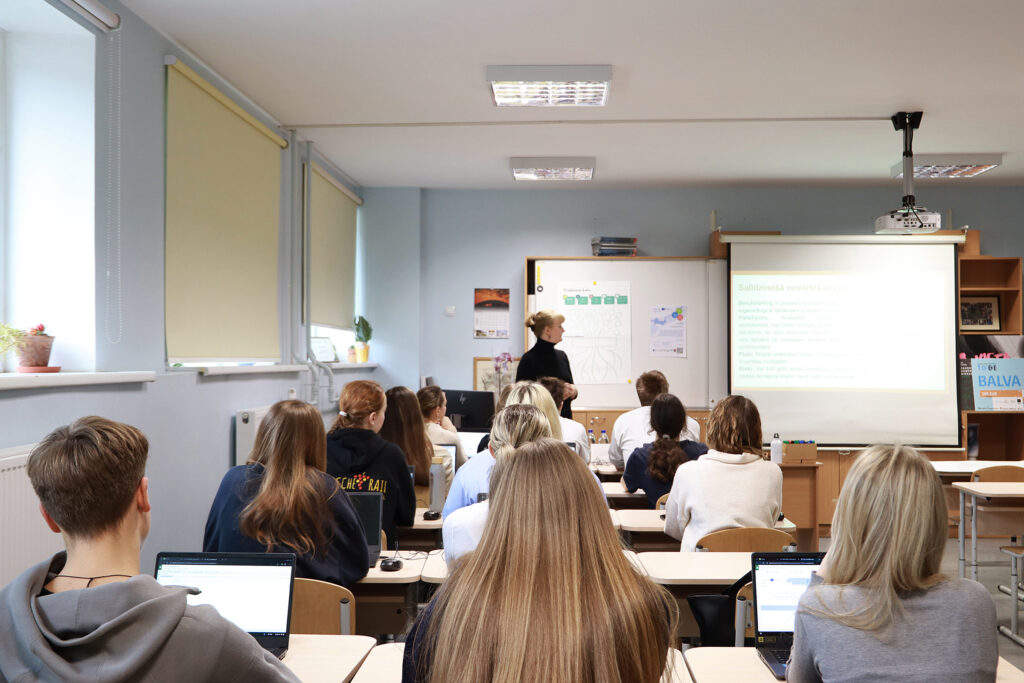Between February 11th and March 7th, new educational materials for students in grades 5-12 were trialed in ten schools across the Zemgale region. These educational materials were developed to foster an understanding of social entrepreneurship and inspire young people to create socially responsible businesses in the future. Initiative was carried out by the Zemgale Planning Region (ZPR) in cooperation with the Latvian Social Entrepreneurship Association (LSUA) and the “Children’s Social and Financial Education Society,” as part of the project “Enhancing the Social Entrepreneurship Ecosystem in Zemgale and Northern Lithuania” (Re:Impact).
The educational materials, which include ten lessons for primary school and six for secondary school, are designed as a practical tool for social studies teachers. Their aim is to integrate social entrepreneurship topics into the daily learning process and motivate students to take the first steps in establishing their own student social enterprises.
To ensure the educational materials meet the real needs of teachers and students, a survey of educators was conducted prior to their development. The feedback received after the piloting phase will be used to refine the educational materials, with a particular focus on their practical applicability and a teacher-friendly format. As Inga Ašmane, a representative of the society, pointed out, the goal was to create materials that are not an additional burden but rather a genuinely useful support for social studies lessons, offering teachers the flexibility to use them in full or to integrate certain topics.
The piloting took place in both urban and rural schools, reaching a wide range of students and offering diverse lesson topics. Students learned the basic principles of social entrepreneurship, analyzed social problems, sought innovative solutions, and gained an understanding of the practical steps involved in developing a social business idea and attracting funding. For instance, at Jelgava Spīdola State Gymnasium, students engaged in an interactive lesson, creating a “social problem tree” and visualizing solutions with LEGO models. According to student feedback, this approach helped them to better understand the causes and interconnections of social problems and also fostered creative problem-solving.
To help teachers practically prepare for using the new educational materials, a workshop was held for educators on March 14th at the Zemgale Entrepreneurship Centre co-working space “Koprade” in Jelgava. Participants not only expanded their knowledge of the essence of social entrepreneurship but also stepped into the students’ shoes, learning idea generation methods and working practically with the tasks included in the educational materials, much like the students did during the piloting phase. Data from research conducted during the moderation session indicated that teachers also lack a comprehensive understanding of social entrepreneurship and its potential. Therefore, it is important to invest in the professional development of teachers, providing them with both knowledge and practical skills.
After compiling the feedback and refining the educational materials, they will be submitted for accreditation to the State Education Development Agency (VIAA), so that they can be available to schools throughout Latvia starting from the new 2025/2026 academic year.


